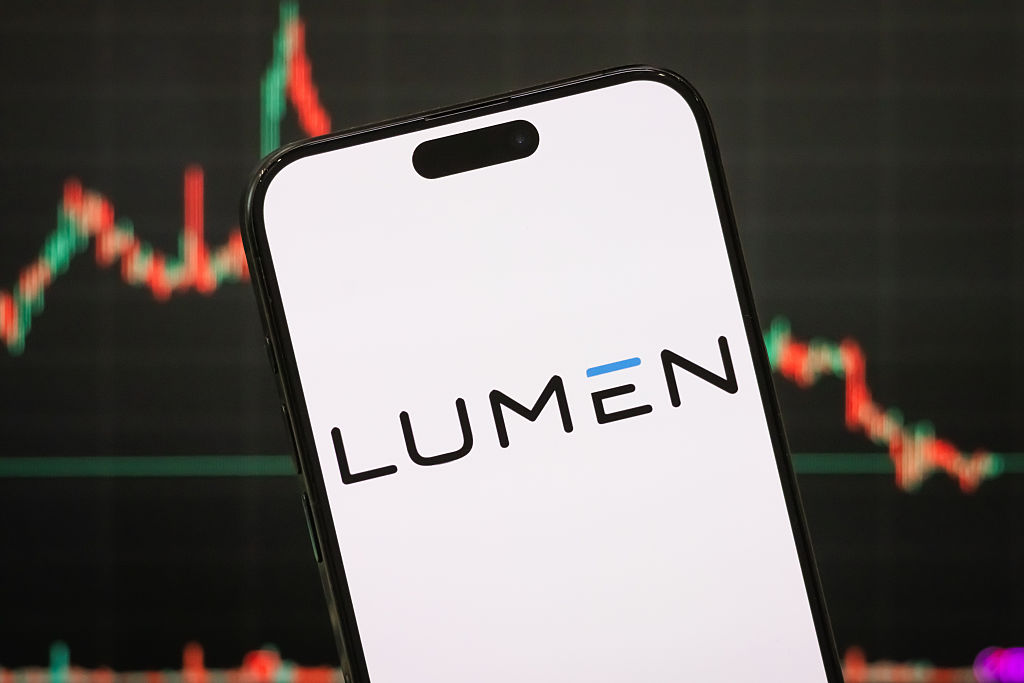Best Cheap Stocks (Under $10) to Buy Now
When seeking out the best cheap stocks to buy under $10, investors should focus on quality and liquidity. Here are five we like.

Profit and prosper with the best of Kiplinger's advice on investing, taxes, retirement, personal finance and much more. Delivered daily. Enter your email in the box and click Sign Me Up.
You are now subscribed
Your newsletter sign-up was successful
Want to add more newsletters?

Delivered daily
Kiplinger Today
Profit and prosper with the best of Kiplinger's advice on investing, taxes, retirement, personal finance and much more delivered daily. Smart money moves start here.

Sent five days a week
Kiplinger A Step Ahead
Get practical help to make better financial decisions in your everyday life, from spending to savings on top deals.

Delivered daily
Kiplinger Closing Bell
Get today's biggest financial and investing headlines delivered to your inbox every day the U.S. stock market is open.

Sent twice a week
Kiplinger Adviser Intel
Financial pros across the country share best practices and fresh tactics to preserve and grow your wealth.

Delivered weekly
Kiplinger Tax Tips
Trim your federal and state tax bills with practical tax-planning and tax-cutting strategies.

Sent twice a week
Kiplinger Retirement Tips
Your twice-a-week guide to planning and enjoying a financially secure and richly rewarding retirement

Sent bimonthly.
Kiplinger Adviser Angle
Insights for advisers, wealth managers and other financial professionals.

Sent twice a week
Kiplinger Investing Weekly
Your twice-a-week roundup of promising stocks, funds, companies and industries you should consider, ones you should avoid, and why.

Sent weekly for six weeks
Kiplinger Invest for Retirement
Your step-by-step six-part series on how to invest for retirement, from devising a successful strategy to exactly which investments to choose.

People love cheap stocks for their affordability factor and their ability to reap big gains in a short period of time (though, this also means investors can suffer big losses in a hurry).
But it's important to remember that cheap stocks are not necessarily better stocks.
"False promises of quick and painless riches are easier to fall for when an investment can be made with so little money up front," writes Kiplinger contributor Dan Burrows in his feature on penny stocks.
From just $107.88 $24.99 for Kiplinger Personal Finance
Become a smarter, better informed investor. Subscribe from just $107.88 $24.99, plus get up to 4 Special Issues

Sign up for Kiplinger’s Free Newsletters
Profit and prosper with the best of expert advice on investing, taxes, retirement, personal finance and more - straight to your e-mail.
Profit and prosper with the best of expert advice - straight to your e-mail.
"An investor might think, 'How risky could it be?'" The answer, Burrows says, is plenty.
"Per the Securities and Exchange Commission: 'Academic studies find that OTC [over-the-counter] stocks tend to be highly illiquid; are frequent targets of alleged market manipulation; generate negative and volatile investment returns on average; and rarely grow into a large company or transition to listing on a stock exchange.'"
If you are interested in cheap stocks, it's vital to do your research beyond just looking at the latest print for prices. You need to take a hard look at risk metrics, recent performance and future outlook in order to invest responsibly.
Why should I buy cheap stocks?

Some investors gravitate to cheap stocks because they see these companies as creating opportunities for larger returns.
And many folks simply don't have the cash to buy some of the priciest stocks on Wall Street, such as online travel company Booking Holdings (BKNG), which trades for roughly $5,100 a share at present.
One choice investors always have is to buy fractional shares of a stock whose price exceeds what they have available to invest.
Another is to find high-quality, cheap stocks. To be clear, this is referring to share price and not valuation metrics like book value or the current price compared with earnings estimates that signal undervalued stocks.
But this process can be difficult for investors. Unlike the best value stocks that tend to boast strong balance sheets and a solid commitment to shareholders, cheap stocks often face weak fundamentals. They are also known to be risky and volatile, which understandably makes some folks hesitant to buy them.
If you only have a few hundred dollars or you want to trade in round lots instead of a single share, then cheap stocks – or at least cheaper stocks – with strong fundamentals are one way to go.
Our methodology to find the best cheap stocks to buy

I have written extensively about capital markets and investing since 2008. Along the way, I've learned how to separate legitimate investing opportunities such as those found in the best stocks to buy from those more likely to result in volatility or dubious performance.
So when I put together this list of the top cheap stocks priced under $10 per share, I focused on companies that are all valued at more than $2 billion, hinting at more established operations, and that have strong trading volume suggesting ample liquidity.
Additionally, I included stocks that trade on major exchanges vs over-the-counter penny stocks. I also sought companies with potential for continued growth.
Bottom line, the best cheap stocks to buy now under $10 each have unique and focused business models that could protect them from the current volatility on Wall Street.
The best cheap stocks to buy
With that in mind, here are five of the best cheap stocks to buy that are priced at or under $10 per share.
Note that one of the risks of buying cheap stocks is that they move quickly, so if you decide to invest in them, do so with small amounts of capital that you can afford to lose.
Data is as of January 22.
Ticker | Company | Share price |
|---|---|---|
BBAI | BigBear.ai Holding | $5.93 |
LUMN | Lumen Technologies | $8.92 |
MPW | Medical Properties Trust | $5.09 |
NUVB | Nuvation Bio | $5.91 |
OPEN | Opendoor Technologies | $6.42 |
BigBear.ai Holding

- Sector: Technology
- Market value: $2.6 billion
BigBear.ai Holdings (BBAI, $5.93) admittedly carries risks, so let's get those out of the way first. For one, BBAI is a play on the volatile artificial intelligence (AI) megatrend, which makes it prone to big price swings. Additionally, the data analytics platform is not yet profitable.
That said, the company has a tremendous niche in the AI landscape in that it serves national security, supply chain management and digital identity firms. This is an incredibly lucrative subsector to be involved in — just look at Palantir Technologies (PLTR) as proof of defense-related upside.
Furthermore, Wall Street anticipates revenue growth of more than 20% in 2026 as the company seeks new opportunities to boost sales.
Case in point: During its third-quarter earnings call in November, BigBear.ai CEO Kevin McAleenan announced the acquisition of generative AI platform Ask Sage. The company "already supports more than 16,000 government teams across 27 agencies and hundreds of commercial companies and annual recurring revenue is on track to grow over 6x from 2024 to 2025," McAleenan said.
That bodes well for the longer-term outlook of this tech stock, which is already up 34% in the past 12 months.
Lumen Technologies

- Sector: Communication services
- Market value: $9.1 billion
Lumen Technologies (LUMN, $8.92) has a complex corporate history. The firm was previously known as CenturyLink, and its long list of acquisitions includes the 2017 takeover of Level 3 Communications.
More recently, Lumen is undergoing a major turnaround and streamlining efforts to right-size the business for the future — and based on recent results, investors are starting to see progress.
Indeed, these efforts have improved Lumen's balance sheet and moved the company into AI and data center operations that benefit from recent digital trends. LUMN is also in the final stages of selling its home fiber-optic internet business to AT&T (T), which could inject nearly $6 billion to recapitalize the business.
LUMN is another risky stock as the company carries more than $17 billion in debt and is fighting an uphill battle to compete with larger telecoms that have deeper pockets. But cheap stocks tend to be cheap for a reason, so if you're not afraid of a more aggressive play, LUMN could be a turnaround stock to watch in 2026.
The communication services stock is already up nearly 15% for the year to date through late January and has gained more than 55% over the past year.
Medical Properties Trust

- Sector: Real estate
- Market value: $3.2 billion
As you may have guessed from the name, Medical Properties Trust (MPW, $5.09) is one of the world's largest owners of hospital real estate, managing roughly 390 facilities and 39,000 licensed beds across nine countries.
The stock is down notably from its 2022 highs, in part because of two major tenant bankruptcies and a related dividend cut. However, MPW has the scale and assets to right the ship. Furthermore, with demographic trends being what they are, it seems unlikely that the U.S. will need fewer hospitals in the coming years.
While long-term investors were hurt by the dividend cut, the move should benefit future operations for the real estate investment trust (REIT). And lower interest rates will help reduce debt loads and provide additional headroom.
As far as cheap stocks go, there is definitely risk with this one. However, the recession-resistant nature of health care and the reality that much of the negativity has already been priced into shares seem to hint that the worst is over.
Shares are in the green for the year to date through late January and are up more than 25% in the past 12 months.
Nuvation Bio

- Sector: Health care
- Market value: $2.03 billion
Nuvation Bio (NUVB, $5.91) is representative of the big potential investors can attain from development-stage drugmakers that may not yet have significant operations but offer tremendous upside if their research pays off.
NUVB won over investors in 2025 thanks to positive results for a Phase 3 study of its early stage lung cancer treatment, Ibtrozi. Shares are up more than 120% in the past 12 months, even amid weak fundamentals.
Indeed, the biotech is not profitable and is expected to book roughly $60 million in total revenue for 2025. But that's often how things typically go for small drugmakers until approval from the Food and Drug Administration (FDA) unlocks the door to significant sales. There's also the chance that a Big Pharma buyout will provide a substantial premium for early investors.
This all underscores the risk of buying these small biotechs, though it's heartening that the 10 analysts covering the heath care stock who are tracked by S&P Global Market Intelligence have a consensus recommendation of Strong Buy.
Speaking for the bulls is Wedbush analyst David Nierengarten, who has an Outperform (Buy) rating on NUVB and an $11 price target, nearly double the stock's current price.
"We continue to believe shares remain undervalued given Ibtrozi's growing commercial momentum in ROS1+ NSCLC [ROS1-positive non-small cell lung cancer] and safusidenib's [NUVB's oral treatment for brain tumors ] differentiated potential in IDH1-mutant glioma," Nierengarten writes in a January 12 note.
Opendoor Technologies

- Sector: Real estate
- Market value: $6.1 billion
Opendoor Technologies (OPEN, $6.42) is a digital platform for residential real estate transactions in the U.S. that aims to simplify the buying and selling process. It differs from other digital listing platforms by looking to disintermediate the traditional agent-based model. It does this by directly buying homes, fixing them up and reselling them for a profit.
However, what has really made Opendoor interesting to investors lately is its "refounding" as a software and AI company, which allows it to profit from transaction fees and efficiency rather than home price appreciation.
OPEN has launched more than a dozen tools to automate the home-buying process, reduce operational expenses and speed up the buying and selling process.
Opendoor's stock has admittedly seen better days and remains significantly below its 2021 peak near $40 a share. That said, it is up more than 10% for the year to date and has grown fourfold in the past 12 months.
Related content
Profit and prosper with the best of Kiplinger's advice on investing, taxes, retirement, personal finance and much more. Delivered daily. Enter your email in the box and click Sign Me Up.

Jeff Reeves writes about equity markets and exchange-traded funds for Kiplinger. A veteran journalist with extensive capital markets experience, Jeff has written about Wall Street and investing since 2008. His work has appeared in numerous respected finance outlets, including CNBC, the Fox Business Network, the Wall Street Journal digital network, USA Today and CNN Money.
-
 Ask the Tax Editor: Federal Income Tax Deductions
Ask the Tax Editor: Federal Income Tax DeductionsAsk the Editor In this week's Ask the Editor Q&A, Joy Taylor answers questions on federal income tax deductions
-
 States With No-Fault Car Insurance Laws (and How No-Fault Car Insurance Works)
States With No-Fault Car Insurance Laws (and How No-Fault Car Insurance Works)A breakdown of the confusing rules around no-fault car insurance in every state where it exists.
-
 Why Picking a Retirement Age Feels Impossible (and How to Finally Decide)
Why Picking a Retirement Age Feels Impossible (and How to Finally Decide)Struggling with picking a date? Experts explain how to get out of your head and retire on your own terms.
-
 The Best Precious Metals ETFs to Buy in 2026
The Best Precious Metals ETFs to Buy in 2026Precious metals ETFs provide a hedge against monetary debasement and exposure to industrial-related tailwinds from emerging markets.
-
 For the 2% Club, the Guardrails Approach and the 4% Rule Do Not Work: Here's What Works Instead
For the 2% Club, the Guardrails Approach and the 4% Rule Do Not Work: Here's What Works InsteadFor retirees with a pension, traditional withdrawal rules could be too restrictive. You need a tailored income plan that is much more flexible and realistic.
-
 Retiring Next Year? Now Is the Time to Start Designing What Your Retirement Will Look Like
Retiring Next Year? Now Is the Time to Start Designing What Your Retirement Will Look LikeThis is when you should be shifting your focus from growing your portfolio to designing an income and tax strategy that aligns your resources with your purpose.
-
 I'm a Financial Planner: This Layered Approach for Your Retirement Money Can Help Lower Your Stress
I'm a Financial Planner: This Layered Approach for Your Retirement Money Can Help Lower Your StressTo be confident about retirement, consider building a safety net by dividing assets into distinct layers and establishing a regular review process. Here's how.
-
 Stocks Sink With Alphabet, Bitcoin: Stock Market Today
Stocks Sink With Alphabet, Bitcoin: Stock Market TodayA dismal round of jobs data did little to lift sentiment on Thursday.
-
 The 4 Estate Planning Documents Every High-Net-Worth Family Needs (Not Just a Will)
The 4 Estate Planning Documents Every High-Net-Worth Family Needs (Not Just a Will)The key to successful estate planning for HNW families isn't just drafting these four documents, but ensuring they're current and immediately accessible.
-
 Love and Legacy: What Couples Rarely Talk About (But Should)
Love and Legacy: What Couples Rarely Talk About (But Should)Couples who talk openly about finances, including estate planning, are more likely to head into retirement joyfully. How can you get the conversation going?
-
 How to Get the Fair Value for Your Shares When You Are in the Minority Vote on a Sale of Substantially All Corporate Assets
How to Get the Fair Value for Your Shares When You Are in the Minority Vote on a Sale of Substantially All Corporate AssetsWhen a sale of substantially all corporate assets is approved by majority vote, shareholders on the losing side of the vote should understand their rights.